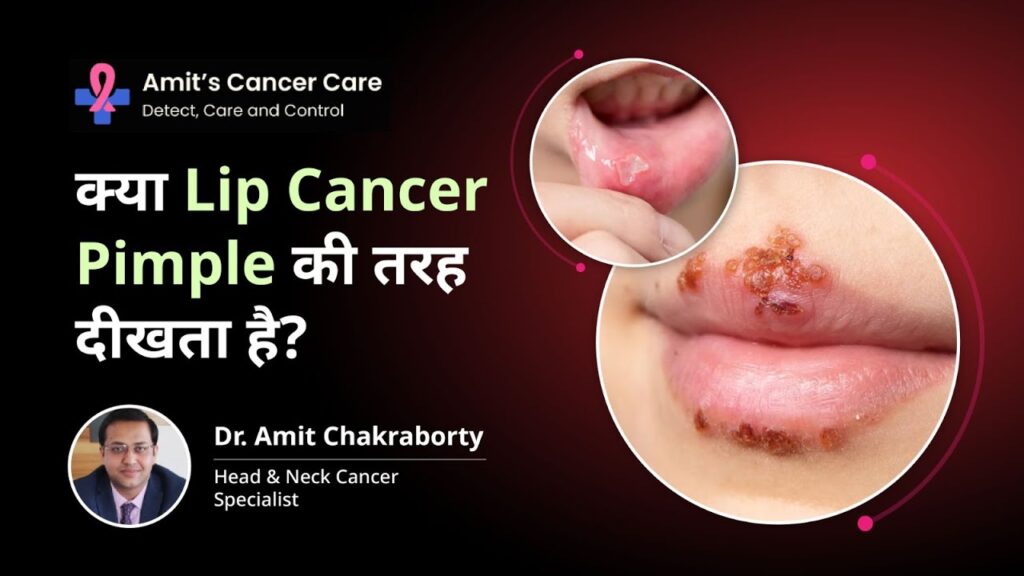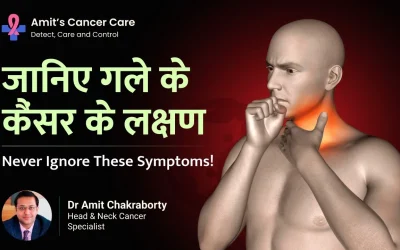Pimples, those pesky little skin blemishes, are common annoyances for most people. But what happens when a pimple decides to make a home on your lip and overstays its welcome, not disappearing despite your best attempts at treatment?
Could such a stubborn lip pimple possibly indicate something more severe, like cancer? Let’s delve into this perplexing topic and shed some light on the matter.
Is Lip Cancer Similar to a Pimple?
The first question many ask when faced with a persistent lip pimple is whether this could be a sign of lip cancer. It’s important to understand that while both might present as a bump or swelling on the lip, a pimple and a cancerous growth are fundamentally different.
A pimple is an inflamed spot on the skin resulting from the blockage of sebaceous glands, usually with oil and dead skin cells. Lip cancer, on the other hand, involves the uncontrolled growth of abnormal cells in the lip.
Nonetheless, if a pimple or ulcer on your lip doesn’t resolve after three weeks of appropriate treatment, it’s advisable to seek medical attention. This stubbornness to heal might be an indication of a more serious issue, including potential cancer.
Is Every Pimple on Your Lips Cancerous?
Thankfully, the answer is no. Not every pimple on the lips is indicative of cancer. However, some persistent lip growths, like a fluid-filled ulcer or lesion, might necessitate surgical intervention. These are often referred to as retention cysts.
A retention cyst is a type of cyst that forms when there’s a blockage in the ducts of the minor salivary glands in the mouth, leading to fluid accumulation. Instead of healing like a normal pimple, a retention cyst will often burst and reform, creating a cycle of reappearance that can be quite alarming.
Can a Retention Cyst Develop Into Cancer?
Cancer developing from a retention cyst is a very rare occurrence. Most retention cysts are benign and don’t increase the risk of cancer. That said, any persistent oral lesion warrants professional evaluation to rule out the possibility of a more serious condition.
Is it Possible That a Lip Pimple is Cancer?
Even though it’s generally uncommon, it’s not beyond the realm of possibility for a lip pimple to be a sign of cancer. This potential risk might seem alarming, but the data offers a reassuring perspective. The majority of lip lesions turn out to be benign.
The American Cancer Society reports that, of all oral cancers, lip cancer accounts for only about 10% of cases, and even within this fraction, not every lesion is attributable to a persistent pimple.
Nonetheless, the potential severity of such cases makes it important to take lingering skin issues seriously.
What’s crucial to keep in mind here is the importance of early detection and intervention. If a pimple or lesion doesn’t resolve with time and treatment or exhibits other concerning characteristics such as pain, bleeding, or changes in size, shape, or color, it’s time to consult a healthcare provider.
The five-year survival rate for lip cancer discovered in its localized stage is 92%, according to the National Cancer Institute’s SEER database.
However, if the cancer spreads to surrounding tissues, organs, or lymph nodes before it’s detected, the five-year survival rate drops to 57%. This stark contrast underlines the immense value of early detection in the successful management of lip cancer.
Wrapping Up
While it can be disconcerting to think that a persistent lip pimple could be a sign of something as serious as cancer, remember that most lip lesions are benign and easily treatable. Nonetheless, consistent vigilance is the key to your oral health.
A pimple that persists despite your best efforts at treatment, or a recurring fluid-filled cyst on the lip, needs to be evaluated by a healthcare professional.
Don’t let fear or uncertainty prevent you from seeking the best lip cancer surgeon in Mumbai; it’s always better to err on the side of caution when it comes to your health.
In the end, understanding your body, acknowledging changes, and seeking timely advice can make a world of difference.
Knowledge is, indeed, power when it comes to your well-being. Stay informed and stay proactive about your health – it’s the best investment you can make.






